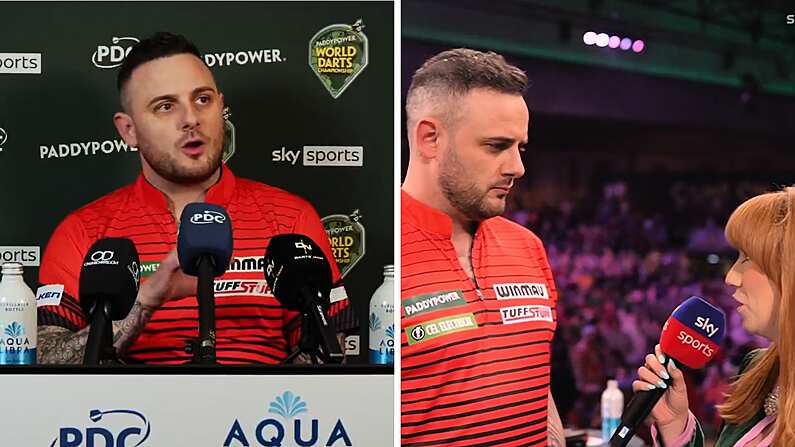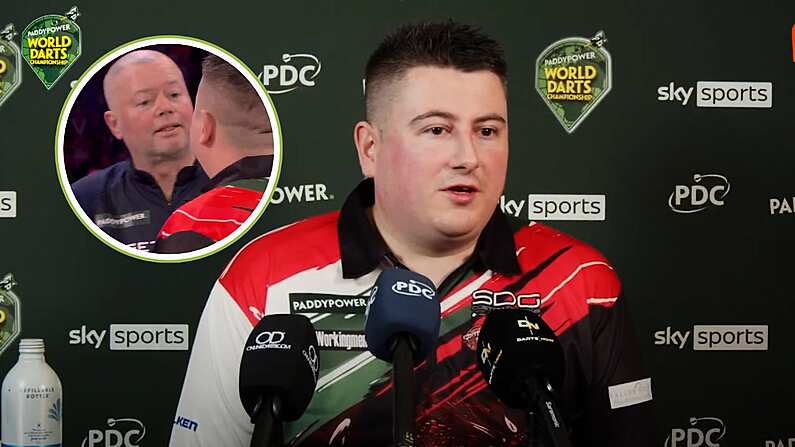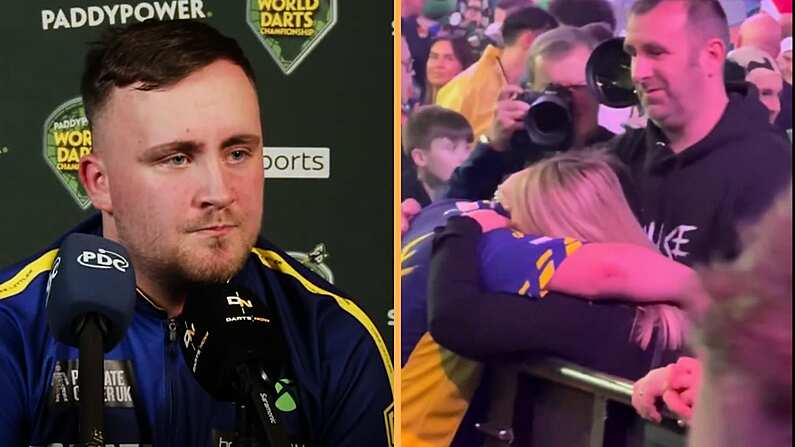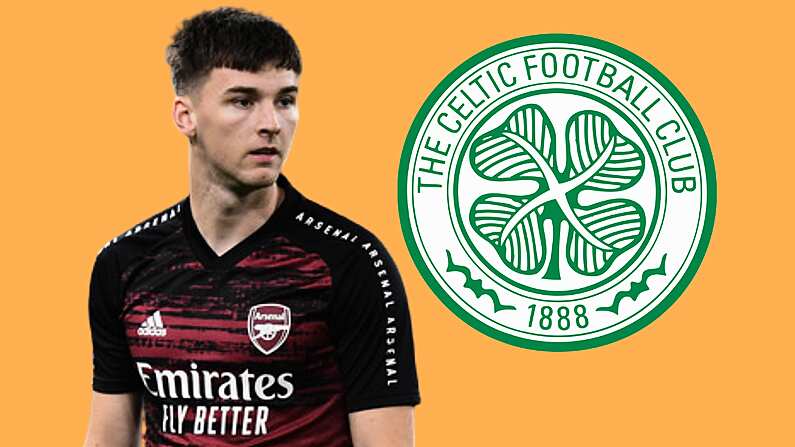Ireland's draw against Serbia last night followed a frustrating template of Irish games in the past ten years: we start well and score early, only to sit back and sit too deep, ending in the inevitable concession of a goal. It seems that we are extremely capable of passing the ball and retaining possession when we don't have a lead to lose. When we have something to lose, however, we frequently revert to hoofing the ball long in a mixture of panic, hope and desperation.
This has not been a new phenomenon under Martin O'Neill: it has affected us greatly under Giovanni Trapattoni, Steve Staunton and Brian Kerr also. Since Kerr took over in 2003, Ireland have played 75 competitive games and surrendered a lead 28 times (twice in games against Slovakia in Euro '08 qualifying and against Italy in 2010 qualifying).
This is not exclusively a problem under O'Neill. Here is the breakdown of how often we surrendered leads in game under each manager:
Brian Kerr - 6 times
Steve Staunton - 6 times
Giovanni Trapattoni - 10 times (this somewhat harshly includes the second-leg of the play-off against France)
Martin O'Neill - 6 times
So what's the problem? We've shown an ability to pass the ball at times under all of the four managers named above (even Trapattoni: we played rather well in the play-off in Paris), so it isn't entirely a fault of technical limitations.
On our Football Show podcast, we spoke to former Irish international Clinton Morrison, who has direct experience in playing in these games in which Ireland take an early lead, only to sit back and ultimately concede.
Morrison opened the scoring for Ireland away to Israel and Switzerland, only for both games to end in a draw, hurting our hopes of qualification for the 2006 World Cup.
Morrison believes it is partly down to playing away from home, along with another, more abstract issue of mentality:
This doesn't just happen at international level. You can't really put that down to anything. When you go a goal up, especially away from home, your tendency is to sit back. They say you're most vulnerable when you've just scored, but you should really go forward and get a second goal.
I do remember those games when we were beating Switzerland and Israel when we went ahead and were pegged up. But it can be difficult, especially in those surroundings, away from home.
I'm a striker, so I want to score more goals, so I got very frustrated when we fell back into our bank of four or bank or eight.
If you score the second goal and you go 2-0 up, then I can agree with everyone sitting back. But it's difficult, it happens with a lot of teams. I don't know why it does happen, maybe it's a mentality thing. They sit back, and as soon as they concede they start playing their football again.
To gain an insight into the psychological background of this tendency in Irish football, we spoke to sports psychologist Canice Kennedy. Firstly, he agrees that playing away from home is a natural factor in determining a more conservative approach:
Whether we like it or not, home and away is partly part of the mindset. There was a study of throw-ins in the Premier League two years ago, and it found that, with teams playing at home, 80% of the throw-ins went forward, whereas with the away teams, 60% of the throw-ins went backwards.
I highly doubt that managers were instructing their players to throw the ball forward or backward.
The mentality part Morrison speaks of, in Mr. Kennedy's opinion, is one of expectation. In life most of us achieve what we expect to. One of the prime reasons last night ended in a draw was, then, in Mr. Kennedy's opinion, because Martin O'Neill expected it:
All the time in soccer, there's a balance between risk and reward. When you go a goal up with ten minutes to go, you might as well sit back and kick the ball away to waste time: there is very little reward in seeking a second goal as there's only ten minutes to go. That's understandable. But when there is 87 minutes to go, I don't think that method is right, but we still fall into that psychology anyway.
Consciously or subconsciously, that can be a problem.
It [the loss of leads] is not a fear of failure. There is a challenge in life: you don't get what you want, you get what you expect.
Listening to Martin O'Neill last night, he had no expectation of winning that game last night. That was likely transmitted to the players. So the players would have thought going onto the field: the best we can get is a draw. So when you go a goal up in football, the chances of you getting a draw is quite high. When we went ahead we were close to achieving our expectation. Our want was to win the game obviously, but because we never really believed we were good enough to achieve that, our want is more or less irrelevant.
We delivered what we expected to get.
Ireland have a fairly spectacular record of recording draws in big games. Our ability to rescue a late draw against high-calibre opposition has given us some of our best nights as Irish fans: against Germany in the 2002 World Cup and Euro 2016 qualifying are the two stand-outs in this regard.
But we've also managed to snatch draws from winning positions with alarming regularity. Of the 26 games in which we've blown leads in since Kerr's appointment, 18 of these games have ended in draws.
The way momentum swung last night was one in which it was easy to depict Ireland as settling entirely for a draw: take an early lead, only to sit back and invite pressure, only returning to attack when we had to salvage a draw. Even when Murphy equalised, we were content to allow Serbia come on to us. The manager's last substitution saw an attacking player being replaced by Ciaran Clark, a defender.
How can it be remedied? In Mr. Kennedy's opinion, Ireland will stop panicking in big games to cling to draws in games they are winning when they stop thinking about the result:
The biggest problem with soccer is that there is too much focus on the result,rather than the performance. If you look at Pep Guardiola: his starting point is to focus on performance, rather than result. When they [his teams] achieve of playing a certain way, then he will start worrying about results. The problem with soccer is that the best team doesn't always win, compared to Gaelic football or hurling. 30% of soccer games end in draws.
Playing well was not the expectation, the draw was the expectation and we got that. That we played badly is irrelevant.
Ultimately in life, the focus should be on performance. It seems as if we are developing players that can pass the ball. But when we went ahead last night, we went back to hanging on, we reverted to type.
This is the problem for O'Neill. International football is a cut-throat business, and this along with the fact that he is not afforded the luxury of daily access to the players that Guardiola is, a focus on results over performance is only natural.
Perhaps, however, in the future, if we learn to look beyond solely the result, it will take care of itself.
See Also: 'Post-Tournament Hangover' - Ireland's Very Chequered History In Post-Tournament Qualifying Campaigns












